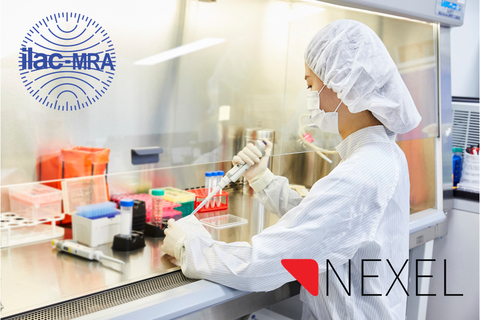
SEOUL, South Korea– NEXEL, a global leader in induced pluripotent stem cell (iPSC) technology, announced today that it has achieved ISO/IEC 17025:2017 quality standard for laboratory testing, the world’s most respected quality management standard, by the Korea Laboratory Accreditation Scheme(KOLAS). KOLAS is a signatory of the International Laboratory Accreditation Cooperation (ILAC) by a Mutual Recognition Arrangement (MRA).
This accreditation covers NEXEL’s test methods for evaluating cardiac safety of drugs using percent change of FPDcF (Field Potential Duration Corrected by Fridericia’s formula) from iPSC-derived cardiomyocytes. This is the first ISO/IEC 17025:2017 certification issued worldwide for iPSC-derived cardiomyocyte-based cardiac safety testing, acknowledging that NEXEL possesses the necessary expertise in cardiac safety testing for drug development programs while meeting the most rigorous ISO quality control requirements.
NeXST (Next Xight Screening Test) Cardiac Safety Service is NEXEL’s pharmacology test service for cardiac safety that predicts and evaluates the risk and harmfulness of the human heart using hiPSC-CM to enable more efficient development of new drugs. Accreditation to the standard enables NeXST Cardiac Safety Service the implementation of a demonstration of technical competence to produce reliable test results meeting the highest international standards in quality control.
“NEXEL Co., Ltd. is the only company in Korea participating in the revision of ICH guidelines as a member of HESI CiPA Working Group.” Commented Choong-seong Han, CEO of NEXEL. “Our cardiac safety pharmacology test platform has validated results using various standard molecules and offers services using our own Cardiosight®-S, an iPSC-derived cardiomyocyte product, which enables flexible experimental design and reasonable costs.”

